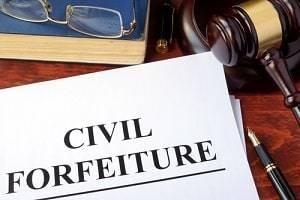New Congressional Bill Proposes Changes to Civil Asset Forfeiture Laws

In the United States, the police and the criminal justice system are under constant scrutiny and judgment from everyone. In recent years, the behavior and conduct of the country’s police force have been topics plastered across research papers, various studies, news articles, and social media posts, especially in the past few months. This has also led many lawmakers to propose new legislation to correct some of the injustices that are known and currently exist in the system, such as how the civil asset forfeiture system currently operates. There are actually three different types of asset forfeiture available, but unlike criminal forfeiture, you do not need to be charged with a crime to have your assets seized through civil forfeiture.
What Is Asset Forfeiture?
Asset forfeiture is a legal practice that allows law enforcement officers to claim a person’s property without charging the person with a crime. This type of forfeiture brings charges against the property itself, rather than the person. To initiate the civil asset forfeiture process, only suspicion is necessary, although the government will have to prove with a preponderance of the evidence that the assets are subject to forfeiture. However, the burden of proof is often left to the property owner to prove that he or she is innocent and he or she is also often not guaranteed the basic right to legal counsel.
Proposed Changes to Civil Forfeiture
Civil asset forfeiture is a widely used process throughout the country that helps both federal and state governments gain revenue. Assets that are seized during civil forfeiture are kept by the government agencies and are used to fund them. According to a review by the Justice Department, more than $3.2 billion in cash seizures were recorded between 2007 and 2016.
Earlier this summer, the Fifth Amendment Integrity Restoration (FAIR) Act was introduced in Congress with the intention of reforming the civil forfeiture process in the United States. The proposed changes to the civil asset forfeiture laws include:
-
Raising the standard of evidence from a “preponderance of the evidence” to “clear and convincing” evidence
-
Removing the burden of proof from the property owner and placing it on the government to prove that the property owner was aware of the criminal activity
-
Guaranteeing property owners the right to legal representation
-
Ending the process of equitable sharing, or allowing state governments to collaborate with the federal government to participate in civil forfeiture
Contact a Hartford, CT Criminal Defense Attorney
Civil asset forfeiture is a process that many agree should remain in place, but that the current system is deeply flawed. If you have been a victim of any type of asset forfeiture or you have been charged with a criminal offense, you should speak with a knowledgeable East Hartford, CT criminal defense lawyer. The qualified and dedicated team at the Woolf & Ross Law Firm, LLC has been representing and advocating for clients’ interests for more than 20 years. To schedule a free consultation, call our office today at 860-290-8690.
Sources:
https://www.nationalreview.com/2020/08/fair-act-civil-asset-forfeiture-reform-bill/
https://www.forbes.com/sites/nicksibilla/2020/06/30/rand-paul-introduces-bill-to-abolish-nonjudicial-civil-forfeiture/#45f7762472db






